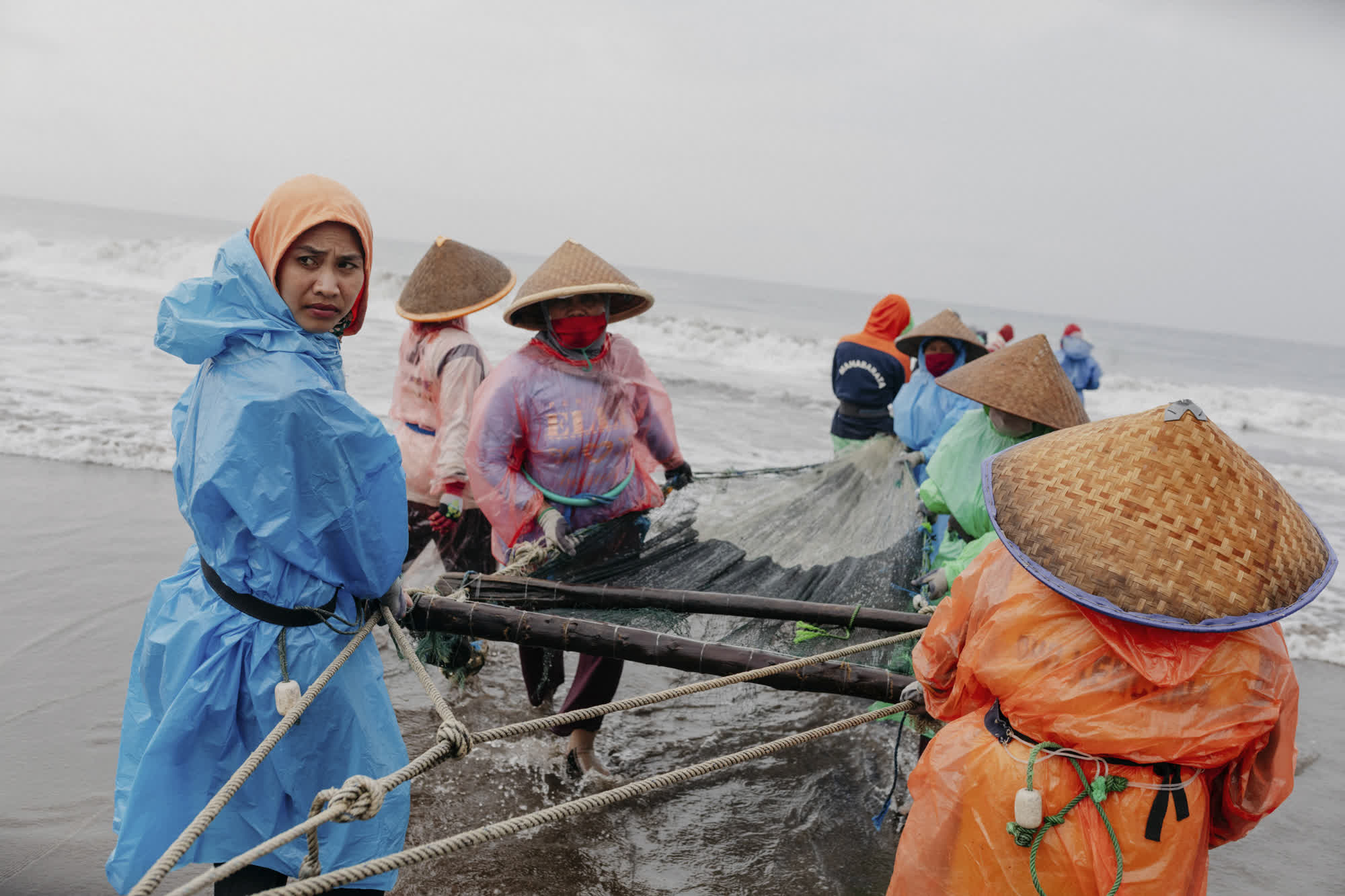A local fisherman performs maintenance on his boat on Logi Beach in West Java, Indonesia, surrounded by washed up garbage.
The west coast of the Indonesian island of Java is popular with surfers for its world-famous surfing spots. There is also a magnificent underwater world to explore. But it’s impossible to surf or snorkel without encountering plastic water bottles, disposable cups and food wrappers.
This garbage sometimes forms islands in the sea, and much of it washes ashore and piles up on beaches.
Approximately 400 million tons of plastic waste are generated globally every year. Every day 2,000 truckloads of waste are dumped into oceans, rivers and lakes.
Despite global efforts to extend the life of plastic products, only 9% of plastic products are actually recycled. Most plastic waste ends up in landfills or shipped to places like Indonesia and other Southeast Asian countries, many of which are already drowning in their own plastic pollution.
Removing trash from Indonesian beaches is no easy task. The country is the world’s second largest producer of plastic waste. As the world’s longest archipelago, Indonesia has a vast coastline and a landmass three times larger, making fishing a livelihood industry for its 12 million people.
Without adequate state services to remove litter from beaches, fishing communities are on the frontline of clean-up efforts.

Masina collects plastic at Logi Beach, trying to sell it to informal recycling centres.

Plastic bottle labels pile up at a recycling center in Bangkok, Thailand.
Logi Beach, located in a bay in West Java province, is particularly prone to plastic accumulation. Ocean currents wash the waste into the bay, where it becomes trapped on the beach.
There is no real community here. Barcelona photographer Edu Ponces said there is no formal road leading to the beach, so locals don’t clean it properly like you see in other parts of the country. Logi Beach tells us one thing: if we decide not to do more about plastic waste, this is what the sea will give us back.
Masina is an Indonesian woman who collects plastic waste at Logi Beach. She then tried to sell it to informal recycling centres, the only way she had been able to earn an income since her husband’s death. Sometimes the local government buys the trash she and others collect, even if it has no use, just to make ends meet.
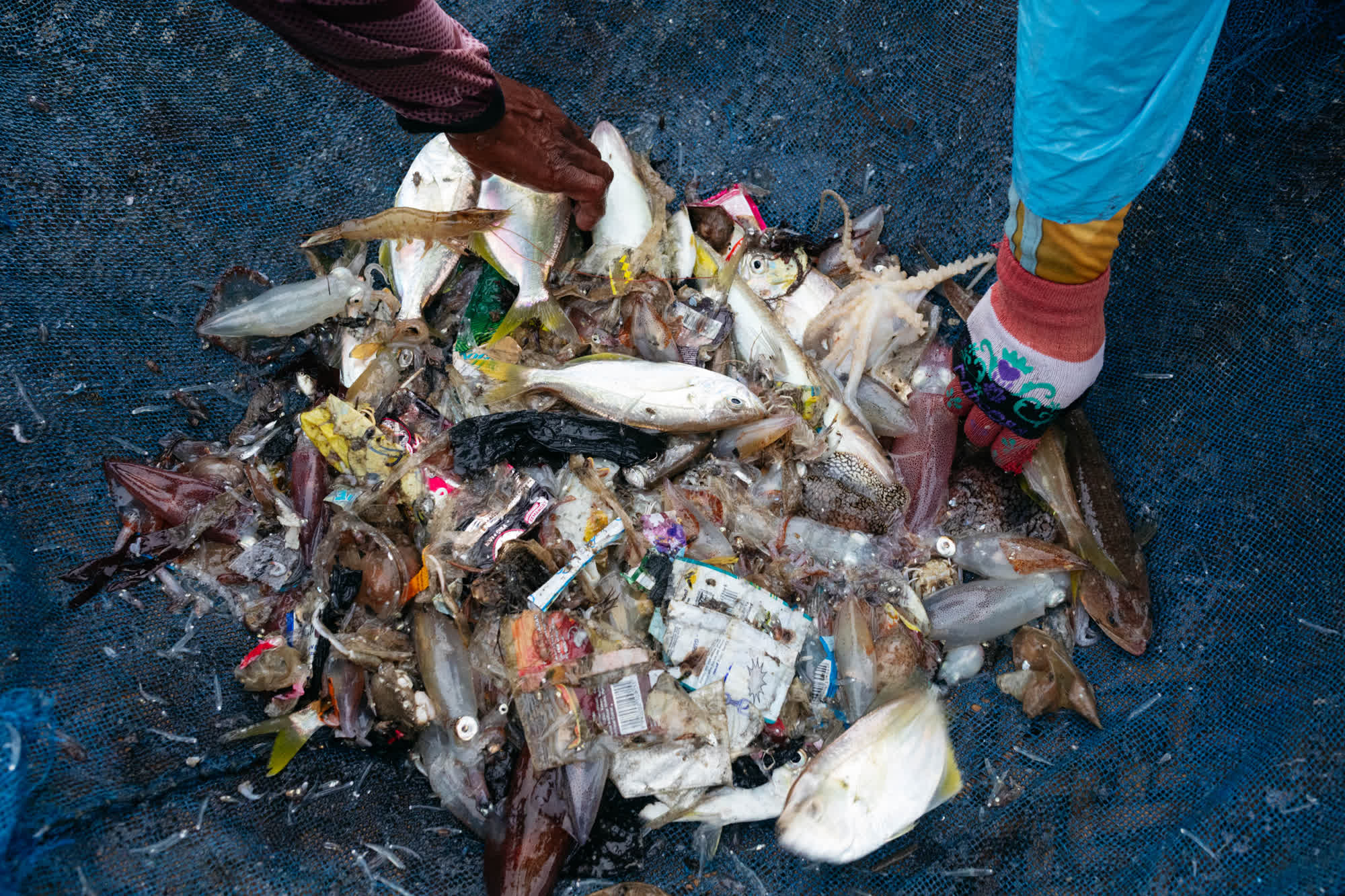
Farther on the Java coast, on Pongadaran Beach, Rahmat Hidayat has an important job: He casts nets from a boat, which are then collected by his colleagues. He said they were catching fewer fish than before and there was more plastic in the catch.
He and his fellow fishermen spent hours separating the plastic from the fish after the catch. Plastics and small microplastics are increasingly entering the food chain as fish are regularly exposed to marine plastic waste.
To stop this vicious cycle, some traditional fishing villages are turning to other methods of fishing.
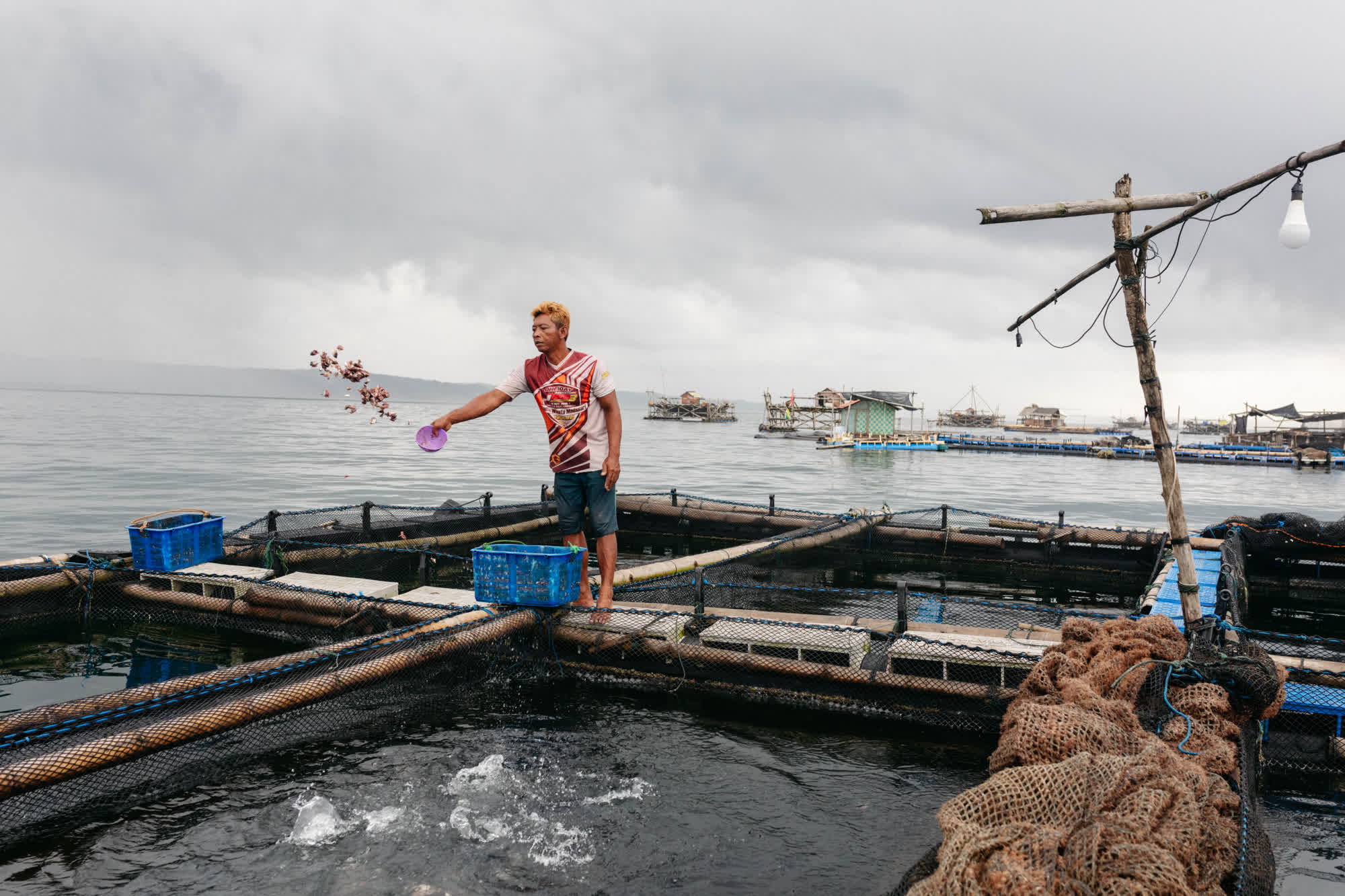

Plastic garbage accumulates on the shores of Logi Beach.

Fisherman Rahmat Hidayat said he caught fewer fish and more plastic.
Indonesia is one of several Southeast Asian countries tightening rules on plastic waste imports in an attempt to prevent it from becoming a dumping ground for countries including China, the United States and European Union countries. Indonesia only allows the shipment of fully recyclable products, but its northern neighbor Thailand has gone further: banning the shipment of all incoming plastic waste starting in 2025.
At the same time, the EU will ban the export of plastic waste to developing countries by 2026. Ban start date.
Photographer Ponces said seeing piles of plastic at a recycling center in Bangkok left a deep impression on him and highlighted the scale of the global problem.
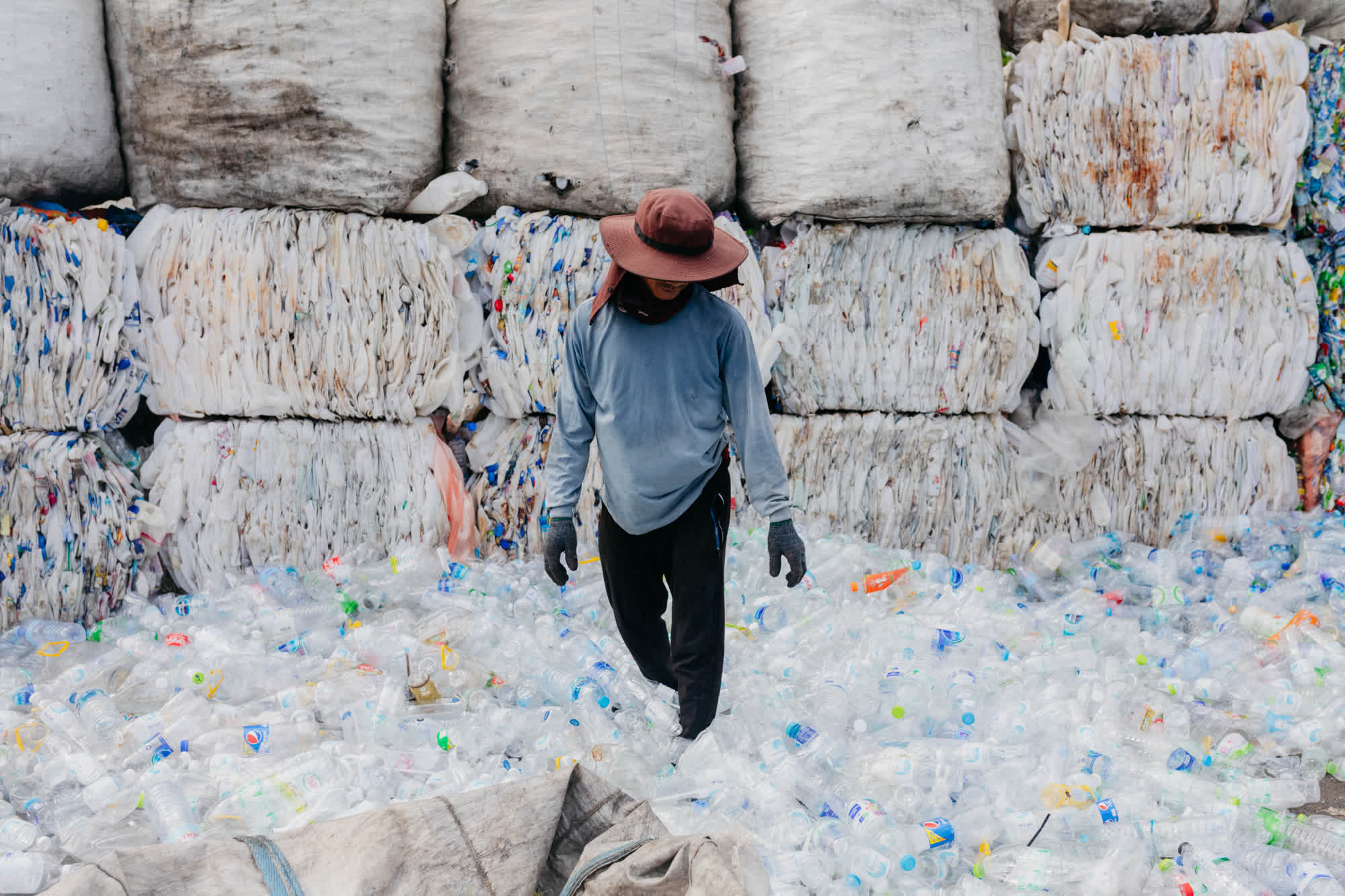
After I took these photos, I went to a convenience store and bought a plastic-wrapped sandwich, and I realized I was part of the problem. We all need to change that, he said.
The ocean has become a key battleground in the fight against climate and environmental crises. We’ve had ocean temperatures break daily heat records every day for more than a year. Acidification is changing many things in the world’s oceans. He said there are so many deaths in the ocean, but we don’t see it all happening underwater.
But the problem of plastic washing up on shore is just one way to show people what’s going on in the ocean.
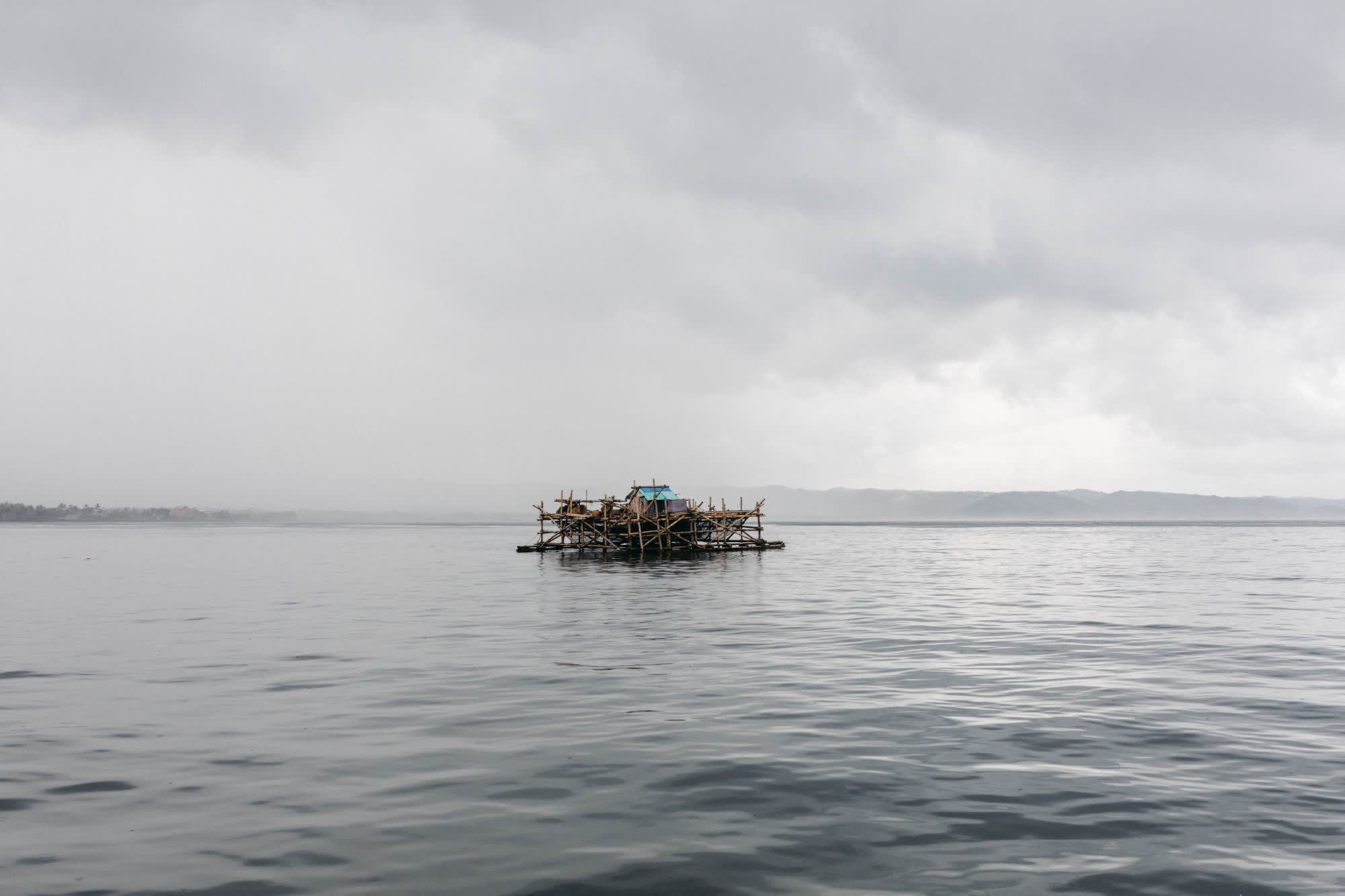
correct An earlier version of the headline incorrectly described how much plastic pollution was being dumped into the ocean. There are 2,000 truckloads of goods every day. This story has been updated.
#truckloads #plastic #dumped #worlds #oceans #day.This
Image Source : www.cnn.com
